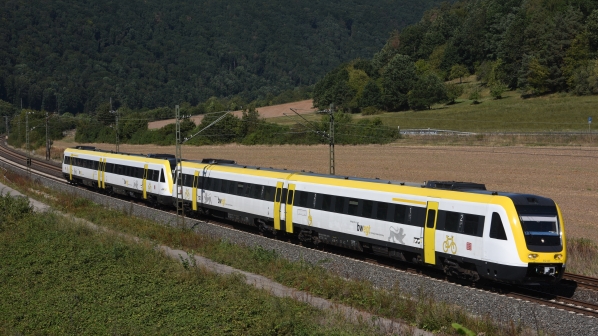The EMUs must be approved and delivered in time for the launch of the Stuttgart - Bodensee E-Network and the Stuttgart 21 and Stuttgart digitalised rail hub projects. Four vehicles must be approved for passenger operation by June 2024, followed by up to 20 vehicles by the third quarter of 2024. Between 70 and 80 vehicles must be approved for passenger operation in November 2025, with the remaining vehicles approved by June 2026.
The manufacturer will be responsible for maintenance and servicing, and must guarantee the vehicles’ energy consumption.
Each vehicle must have seating for 380 passengers, with capacity for up to 1757 passengers when operating in multiple. The trains must not exceed 212m in length when coupled together, measured over the middle of the coupling plates at the ends of the vehicle, and the distance from the centre of the coupling plates at the ends of the vehicle to the beginning of the first door must be at least 6m.
The trains should have selective door controls, to allow operation on 170m - 190m-long platforms. Each door should be at least 1400mm wide.
The EMUs must have a starting acceleration of at least 1.2m/s2 when operating both individually and in multiple. The average braking deceleration in single and double traction must not fall below 0.75m/s2 in the speed range from 200km/h to 0km/h and 0.9m/s2 in the speed range from 160km/h to 0km/h.
All vehicles must be equipped with ETCS on board units with Baseline 3 Release 2 (SRS 3.6.0) and ATO GoA 2. They must also be suitable for upgrade to FRMCS and meet Train Integrity Monitoring (TIM), Train Capability and Open CCS on-board reference architecture (Ocora) requirements.
The manufacturer must be able to supply additional EMUs that are compatible with the first tranche until 2032. The deadline to submitted offers or a request to participate has been extended from August 31 to September 23.
For detailed data on fleet tenders from around the world, subscribe to IRJ Pro.

